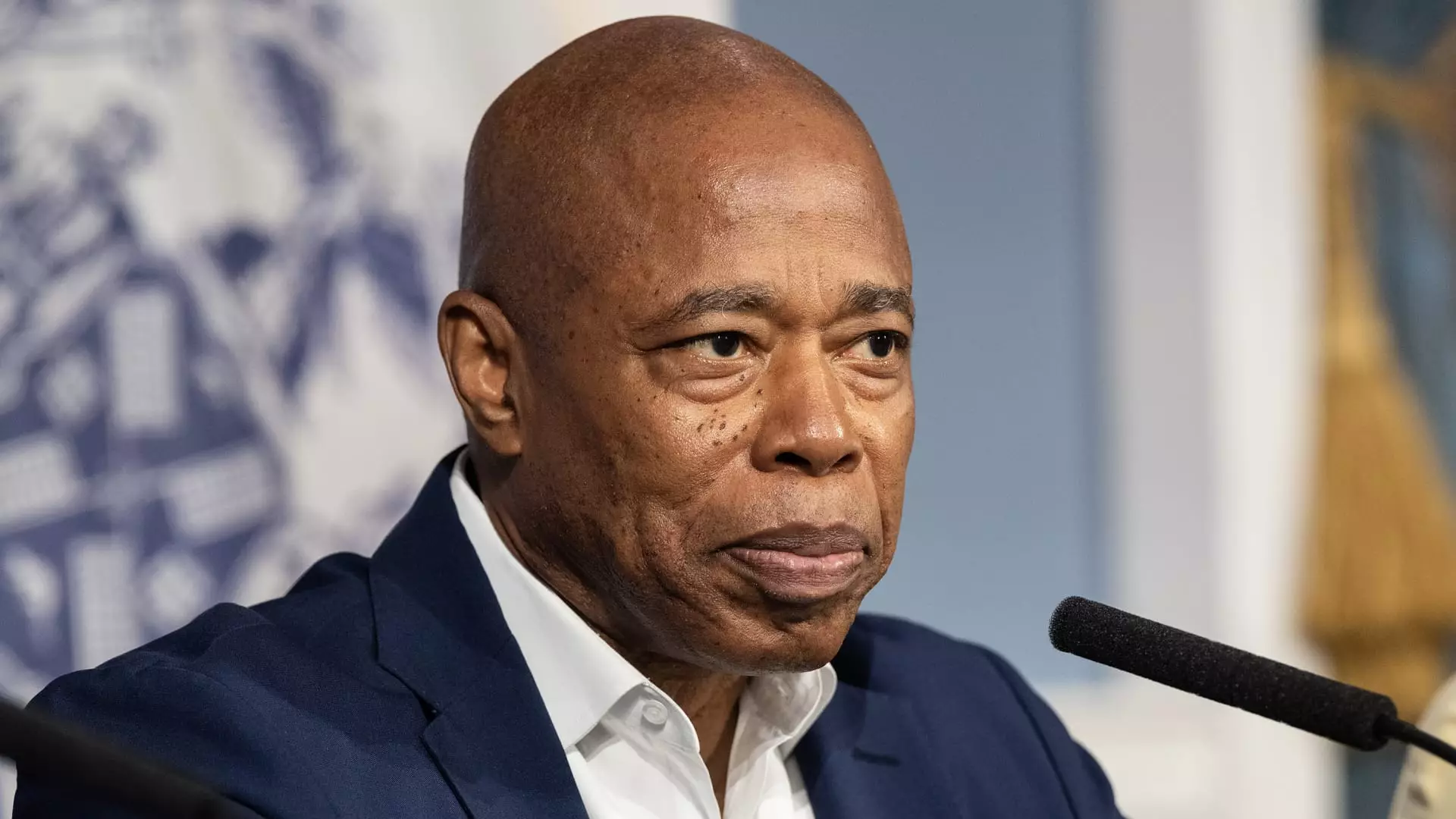The legal challenges facing New York City Mayor Eric Adams have garnered significant media attention, especially following remarks made by President-elect Donald Trump regarding a potential pardon. Adams, a Democrat, has been indicted on federal corruption charges, which involve allegations of accepting lavish gifts from affluent foreign business figures and conspiring in the illicit solicitation of campaign contributions tied to his 2021 mayoral run. On the surface, these serious accusations may warrant a thorough analysis of how political alliances and antagonisms influence judicial proceedings. Trump’s comments, however, complicate that narrative and cast a spotlight on the intersection of law and politics.
During a press conference at his Mar-a-Lago estate, Trump characterized the charges against Adams as exaggerated, insinuating that they include seemingly benign actions, such as enjoying an upgraded flight experience. This trivialization of potentially grave legal infractions raises critical questions about the former president’s understanding of corruption’s implications. By suggesting that Adams was treated “unfairly,” Trump introduces a notion that the legal challenges might serve partisan interests, hinting at a conspiracy rooted in political retribution.
Trump’s observation that he had predicted Adams’ indictment as a joke, which later manifested into reality, illustrates a cynical view of political dynamics, suggesting that contentious political statements could lead to legal repercussions. This perspective not only undermines the gravity of corruption charges but also raises concerns about how humor can potentially diminish public accountability among elected officials.
Trump’s openness to a pardon for Adams not only reveals his instinctive inclination to advocate for politically aligned figures but also reflects broader themes of partisanship within the judicial system. The interplay of favor, power, and political allegiance emerges prominently in this context, casting doubt on the integrity of legal outcomes when intertwined with political motives. Adams has suggested that his outspoken criticism of federal immigration policies has made him a target for prosecution, showcasing how public opinion and policy disagreements can lead to severe consequences in today’s politically charged atmosphere.
This raises the question: are mayors and local leaders now vulnerable to political persecution should they openly challenge federal authority? Adams’ claims echo a larger narrative in which compassion and criticism of governing bodies translate into vulnerability—not only affecting individual politicians but also instilling fear in others who might wish to speak out.
Trump’s proposed pardon underscores the complex relationship between law enforcement, public service, and political dynamics. It calls attention to the need for a robust examination of how corruption allegations, especially when set against a backdrop of political rivalry, can impact the democratic fabric of the nation. The situation also spotlights the importance of maintaining accountability for even the highest-holding officials, lest political connections overshadow legal principles. The unfolding scenario remains vital for understanding the ever-evolving landscape of American politics, challenging our perceptions of justice and governance in a deeply divided society.


Leave a Reply